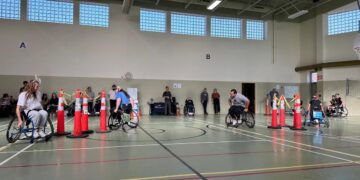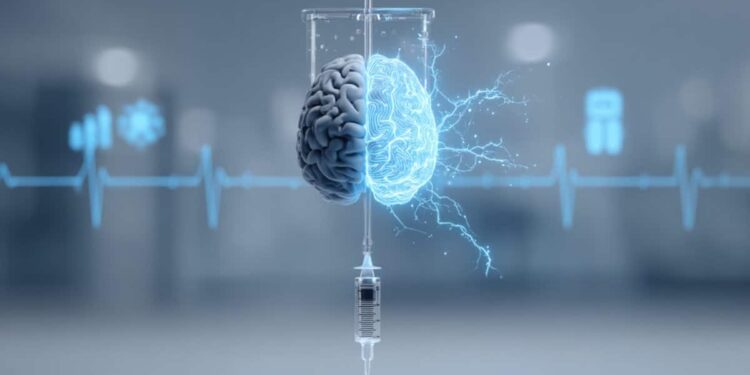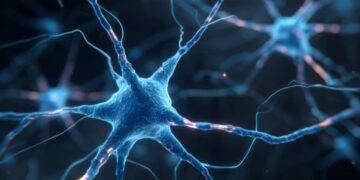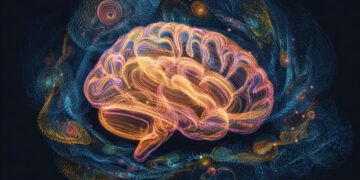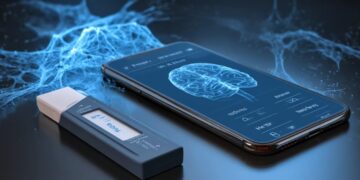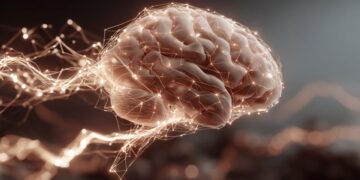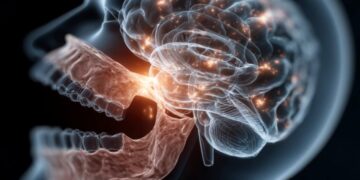Summary: A large randomized, blinded clinical trial found no additional benefit of repeated ketamine infusions over standard hospital care for the treatment of major depression. The study compared ketamine to a psychoactive placebo and found no significant differences in objective or self-reported depression scores, cognition, or quality of life.
The researchers caution that previous studies may have overestimated the antidepressant efficacy of ketamine due to unblinding and placebo effects. The findings emphasize the importance of a rigorous trial design before ketamine is more widely adopted for the treatment of depression.
Key facts:
No additional benefit: Ketamine did not outperform midazolam in reducing depression symptoms or improving quality of life. Concern about the placebo effect: Most participants correctly guessed their treatment, possibly inflating perceived effects. Clinical Implication: The findings call for recalibrating expectations about the antidepressant potential of ketamine and ensuring careful evaluation before clinical adoption.
Source: TCD
Findings from a randomized, blinded clinical trial investigating repeated infusions of ketamine to treat depression have revealed no additional benefit of ketamine when added to standard care for people admitted to hospital for depression.
The article is published today in the journal JAMA Psychiatry.
The KARMA-Dep trial (2) involved researchers from St Patrick’s Mental Health Services, Trinity College Dublin and Queens University in Belfast, Ireland. It was led by Declan McLoughlin, research professor of psychiatry at Trinity College Dublin and consultant psychiatrist at St Patrick’s Mental Health Services.
Depression has been recognized by the World Health Organization as one of the leading causes of disability worldwide. According to the Health Research Board’s most recent report, in 2023 there were 15,631 adult admissions to psychiatric services in Ireland. As in previous years, depressive disorders accounted for the highest proportion (around 24%) of all admissions.
Studies show that around 30% of people with depression do not respond well enough to conventional antidepressants, which mainly target monoamine neurotransmitters such as serotonin, dopamine and norepinephrine. Therefore, there is a need for new treatments.
One such novel treatment is the dissociative anesthetic ketamine when administered intravenously in low subanesthetic doses. Ketamine works differently from other antidepressants and is thought to mediate its effects in the brain through the chemical messenger glutamate.
Single infusions of ketamine have been reported to produce rapid antidepressant effects, but they wear off within days. However, ketamine is increasingly adopted as an off-label treatment for depression, although evidence supporting this practice is limited.
One possibility is that repeated ketamine infusions may have a more sustained benefit. However, this has so far been evaluated in only a small number of trials that have used an appropriate control condition to mask the obvious dissociative effects of ketamine, for example, altered awareness and perceptions of self and environment.
KARMA-Dep 2 is an investigator-led trial funded by the Health Research Board. The randomized trial was developed to evaluate the efficacy, safety, cost-effectiveness, and quality of life of antidepressants during and after serial ketamine infusions compared to a psychoactive comparator drug, midazolam.
Trial participants were randomly assigned to receive up to eight infusions of ketamine or midazolam, administered over four weeks, in addition to all other aspects of usual hospital care.
The trial findings revealed that:
There were no significant differences between the ketamine and midazolam groups at the end of treatment on the trial’s primary outcome, which was an objective measure of depression. This was assessed with the commonly used Montgomery-Åsberg Depression Rating Scale (MADRS). There were no significant differences between the two groups at the end of the treatment course on a patient-rated subjective depression scale. This was assessed with the commonly used Quick Inventory of Depressive Symptoms (QIDS-SR-16) self-report scale.
No significant differences were found between the ketamine and midazolam groups in the secondary outcomes of cognitive, economic, or quality of life outcomes.
Despite best efforts to blind trial patients and investigators to the randomized treatment, the vast majority of patients and evaluators correctly guessed the treatment assignment. This could lead to enhanced placebo effects.
Speaking about the impact of the findings, Declan McLoughlin, research professor of psychiatry at Trinity College Dublin and consultant psychiatrist at St Patrick’s Mental Health Services, said:
“Our initial hypothesis was that repeated infusions of ketamine in hospitalized people with depression would improve mood outcomes. However, we found that this is not the case.
“Under the rigorous conditions of the clinical trials, supplemental ketamine did not provide any additional benefit to routine hospital care during the initial treatment phase or the six-month follow-up period.
“Previous estimates of ketamine’s antidepressant efficacy may have been exaggerated, highlighting the need to recalibrate expectations in clinical practice.”
Lead author of the study, Dr Ana Jelovac, Trinity College Dublin, said:
“Our trial highlights the importance of reporting the success, or lack thereof, of blinding in clinical trials. Especially in clinical trials of therapies where keeping blind is difficult, for example, ketamine, psychedelics, brain stimulation therapies. These problems can lead to enhanced placebo effects and biased trial results that can overinflate the true treatment effects.”
Key questions answered:
A: The trial tested whether repeated infusions of low-dose ketamine improve depression outcomes when added to standard hospital care.
A: There were no significant differences between patients who received ketamine and those who received a psychoactive placebo (midazolam) on all measures of major depression and quality of life.
A: Despite the increasing off-label use of ketamine for depression, this rigorously blinded trial suggests that its antidepressant benefits may have been exaggerated, underscoring the need for more cautious clinical use.
A: Many participants accurately guessed which treatment they received, possibly amplifying placebo effects and influencing perceived improvements in mood.
About this research news on psychopharmacology, ketamine and depression
Author: Ciara O’Shea
Source: TCD
Contact: Ciara O’Shea – TCD
Image: Image is credited to Neuroscience News.
Original Research: Closed access.
“Serial Ketamine Infusions as Adjunctive Therapy to Inpatient Care for Depression” by Declan McLoughlin et al. JAMA Psychiatry
Abstract
Serial ketamine infusions as complementary therapy to hospital care for depression
Importance
Serial ketamine infusions are increasingly being adopted as an off-label treatment for major depression in routine clinical practice, but robust evidence from placebo-controlled psychoactive trials on short- and long-term efficacy and safety remains limited.
Aim
To evaluate the efficacy, safety, tolerability, cost-effectiveness, and quality of life of antidepressants during and after serial ketamine infusions compared with midazolam as an adjunct to routine hospital care.
Design, setting and participants
The KARMA-Dep 2 trial was a pragmatic, double-blind, randomized, midazolam-controlled, investigator-led trial conducted at an academic center in Ireland between September 2021 and August 2024. Participants included adults (≥18 years) hospitalized with a DSM-5 major depressive episode (unipolar or bipolar) and a baseline Montgomery-Åsberg Depression Rating Scale (MADRS) score. ≥20.
Interventions
Participants were randomized 1:1 to receive up to 8 twice-weekly intravenous infusions of ketamine (0.5 mg/kg) or midazolam (0.045 mg/kg) as an adjunct to usual care pharmacotherapy and other aspects of routine inpatient psychiatric care. Participants were followed for 6 months.
Main results and measures
The primary outcome was the change in depression symptom severity measured by the observer-rated MADRS score from baseline to the end of treatment. Secondary outcomes included self-reported depression severity, safety, tolerability, healthcare costs, and quality of life.
Results
Of 65 randomized participants (mean (SD) age, 53.5 (18.6) years; 37 (59.7%) men), 62 were included in the final analysis. In the primary outcome analysis, MADRS scores at the end of treatment did not differ significantly between the ketamine and midazolam groups (adjusted mean difference, −3.16 points, 95% CI, −8.54 to 2.22; P = 0.25; Cohen’s d, −0.29).
Similarly, there were no significant group differences among self-report Rapid Inventory of Depressive Symptoms scores (adjusted mean difference, −0.002; 95% CI, −2.71 to 2.71; P > 0.99; Cohen’s d, −0.0004). There were no significant differences between groups in other secondary outcomes, including cognition, profitability, or quality of life. Most patients and evaluators accurately guessed the treatment assignment.
Conclusions and relevance
Serial adjunctive ketamine infusions were no more effective than serial midazolam infusions in reducing depressive symptoms in hospitalized patients receiving routine psychiatric care.
Test record
ClinicalTrials.gov Identifier: NCT04939649

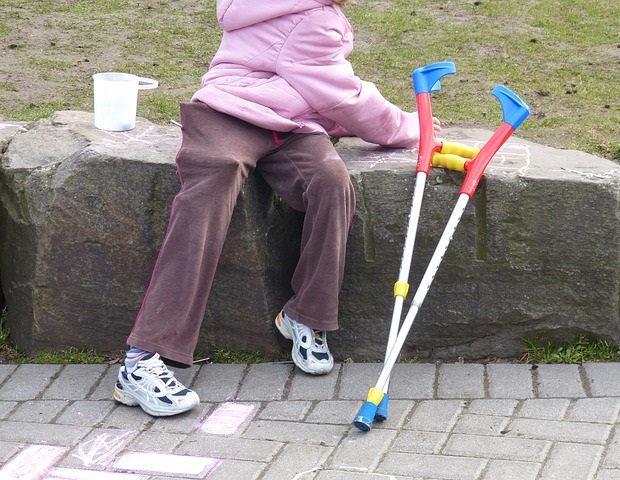
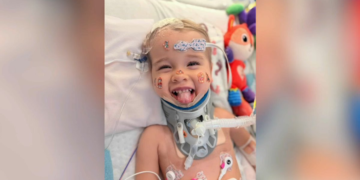
_6e98296023b34dfabc133638c1ef5d32-620x480.jpg)
